Media Coverage

Daily News
President Trump is banking on a strong economy to see him into a second term.
But nearly three quarters of U.S. business economists said in a new survey they expect a recession by the end of 2021.
Nearly 40% of economists surveyed by the National Association for Business Economics predict a recession will start next year. More than 30% expect one in 2021, while a small cadre of pessimists — 2% of respondents — say recession will hit this year.
A recent Bloomberg survey of economists yielded similar views.
"Trade tensions are needlessly roiling financial markets, which could eventually destabilize a stable economy,” Parul Jain of Rutgers Business School said in the Bloomberg survey.
But nearly three quarters of U.S. business economists said in a new survey they expect a recession by the end of 2021.
Nearly 40% of economists surveyed by the National Association for Business Economics predict a recession will start next year. More than 30% expect one in 2021, while a small cadre of pessimists — 2% of respondents — say recession will hit this year.
A recent Bloomberg survey of economists yielded similar views.
"Trade tensions are needlessly roiling financial markets, which could eventually destabilize a stable economy,” Parul Jain of Rutgers Business School said in the Bloomberg survey.

Commercial Cafe
We asked Kevin Riordan, Executive Director of the Center for Real Estate at Rutgers Business School to weigh in on the ideal type of office space for an IT startup:
By definition, the ages of employees in most IT startups are in their 20’s or 30’s. They were teenagers or in their early 20’s when the iPhone was introduced in mid-2007. What that means is that they have never known a world where information and communication are no more than a tap or swipe away. They thrive and adapt in a world where tomorrow a new app can help them navigate work demands better and interface with fellow employees and friends. So physical environment, while needing to be comfortable, must also be adaptable. This will naturally lead them to a coworking environment. The space will include small trappings of formality but embody a sense of community with shared goals.
By definition, the ages of employees in most IT startups are in their 20’s or 30’s. They were teenagers or in their early 20’s when the iPhone was introduced in mid-2007. What that means is that they have never known a world where information and communication are no more than a tap or swipe away. They thrive and adapt in a world where tomorrow a new app can help them navigate work demands better and interface with fellow employees and friends. So physical environment, while needing to be comfortable, must also be adaptable. This will naturally lead them to a coworking environment. The space will include small trappings of formality but embody a sense of community with shared goals.
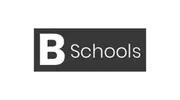
B Schools
Experts agree that moving toward gender equality is not only the right thing to do but it’s the smart thing to do. So shouldn’t MBA programs—where women frequently make up less than 38 percent of the student body—be focused on achieving it?
Consider Rutgers Business School, which excels at the traditional metrics. CEO Magazine ranks their global executive MBA as 11th best in the world. Financial Times has RBS in the top ten in four categories: corporate strategy, economics, statistics, and manufacturing/logistics. But one statistic, in particular, stands out: in 2014, over 50 percent of new MBA students at RBS were female. In the intervening years, the female population of MBA students at RBS has leveled out closer to the national average. It’s also caught the attention of the RBS administration and has got them changing the way they do business.
“Research shows it’s the diversity of ideas and the diversity of backgrounds that create successful teams,” says Dr. Sharon Lydon, senior associate dean of MBA programs at Rutgers Business School. “And in this global economy, we need to make sure teams represent the community which will be using their products and services. Diversity is only going to help further advance what we’re doing. But if we’re going to be homogenous and similar, we’re not going to get very far.”
Consider Rutgers Business School, which excels at the traditional metrics. CEO Magazine ranks their global executive MBA as 11th best in the world. Financial Times has RBS in the top ten in four categories: corporate strategy, economics, statistics, and manufacturing/logistics. But one statistic, in particular, stands out: in 2014, over 50 percent of new MBA students at RBS were female. In the intervening years, the female population of MBA students at RBS has leveled out closer to the national average. It’s also caught the attention of the RBS administration and has got them changing the way they do business.
“Research shows it’s the diversity of ideas and the diversity of backgrounds that create successful teams,” says Dr. Sharon Lydon, senior associate dean of MBA programs at Rutgers Business School. “And in this global economy, we need to make sure teams represent the community which will be using their products and services. Diversity is only going to help further advance what we’re doing. But if we’re going to be homogenous and similar, we’re not going to get very far.”

The National Association of State Boards of Accountancy (NASBA)
This year’s Accounting Education Research Grant recipients include the team of Dierdre Collier and Hannah Rozen from Fairleigh Dickinson University and Alexander Sannella of Rutgers University. Their work, “Why Master’s in Accounting Students Do Not Sit for the CPA: Determinants and Perceptions of CPA Value,” attempts to identify characteristics—both objective and perceptual—of graduate level accounting students who successfully complete a master’s level accounting degree program without plans to sit for the exam. The team has been awarded $6,000 to purse this project.

Khaleej Times
At 5am on August 5, the US president sent a message on Twitter accusing China of being a "currency manipulator", describing this as a "major violation". US Treasury Secretary Steven Mnuchin followed with an official announcement later that day.
The term "currency manipulator" has no regulatory import or effect, but the accusation escalates tensions between China and the United States. On the same day, the Chinese currency, officially the renminbi yuan, had devalued to a rate of 7.05 per US dollar - meaning that a dollar converts into more renminbi than before, thereby insulating them from the effects of US tariffs.
The term "currency manipulator" has no regulatory import or effect, but the accusation escalates tensions between China and the United States. On the same day, the Chinese currency, officially the renminbi yuan, had devalued to a rate of 7.05 per US dollar - meaning that a dollar converts into more renminbi than before, thereby insulating them from the effects of US tariffs.

Bloomberg
Ronnee Ades, professor of professional practice in the finance and economics department at the Rutgers University Business School, and Ryan Smith, a Rutgers business school student, talks with Bloomberg's Scarlet Fu about the school's competition to create a new index/ETF.

The New York Times
In recent years, The Journal Star has been hit with the kind of cutbacks that have become common for newspapers nationwide as they steer a bumpy course toward a digitally focused future. The newsroom had more than 80 guild employees in the 1990s, and now has about a dozen.
Such is the strange state of an industry that has been part of the American fabric since the days of The New-England Courant, a newspaper started by James Franklin, older brother to Benjamin Franklin.
“We gutted those papers by taking the journalism out of them,” said Mr. Chase, now chief executive of CALmatters, a nonprofit covering California state politics.
In the role of publisher, investors discovered that lowering overhead typically reduced costs at a faster rate than it drove down revenues. Many papers shrank. And their profits went up.
“Put yourself in the shoes of a hedge fund or private equity firm,” said John Longo, a Rutgers Business School professor. “Newspapers have steady, albeit slightly sinking, cash flow. In that kind of business, you can put some leverage on.”
Such is the strange state of an industry that has been part of the American fabric since the days of The New-England Courant, a newspaper started by James Franklin, older brother to Benjamin Franklin.
“We gutted those papers by taking the journalism out of them,” said Mr. Chase, now chief executive of CALmatters, a nonprofit covering California state politics.
In the role of publisher, investors discovered that lowering overhead typically reduced costs at a faster rate than it drove down revenues. Many papers shrank. And their profits went up.
“Put yourself in the shoes of a hedge fund or private equity firm,” said John Longo, a Rutgers Business School professor. “Newspapers have steady, albeit slightly sinking, cash flow. In that kind of business, you can put some leverage on.”
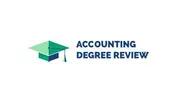
Accounting Degree Review
The Rutgers Business School Master of Accountancy in Taxation ranked #5 best Master’s in Taxation in the U.S. by Accounting Degree Review.
The taxation specialty is growing, due in part to increasingly more complicated tax codes with frequent changes. The Bureau of Labor Statistics reports how careers within personal financial advising are expected to grow by 15 percent by 2026.
The Rutgers Business School is part of two universities: Rutgers University-Newark and Rutgers University-New Brunswick. The AACSB-accredited business school ranked #1 Public Business School in the Northeast U.S. by Financial Times. Rutgers Business School, founded in 1929, offers undergraduate and graduate degrees. The Master of Accountancy in Taxation is one of 11 graduate programs. It ranked #11 best Master’s in Taxation program in the world by ValueColleges.com.
The taxation specialty is growing, due in part to increasingly more complicated tax codes with frequent changes. The Bureau of Labor Statistics reports how careers within personal financial advising are expected to grow by 15 percent by 2026.
The Rutgers Business School is part of two universities: Rutgers University-Newark and Rutgers University-New Brunswick. The AACSB-accredited business school ranked #1 Public Business School in the Northeast U.S. by Financial Times. Rutgers Business School, founded in 1929, offers undergraduate and graduate degrees. The Master of Accountancy in Taxation is one of 11 graduate programs. It ranked #11 best Master’s in Taxation program in the world by ValueColleges.com.

NJ.com
We are constantly reminded that 97 percent of scientists believe in global warming or alternatively climate change. That is incorrect, the number is actually 100 percent. Why? Because every scientist knows carbon dioxide is a greenhouse gas, that it is increasing, and greenhouse gases cause warming. That conclusion, however, is trivial. The far more important one is “how much and does it really matter”? Herein lies the crux of the problem.
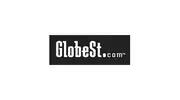
GlobeSt.com
There are approximately 8700 qualified opportunity zones located across the US with 169 in New Jersey. What do they all have in common? We take a closer look in this EXCLUSIVE commentary on the subject.
In December 2017, The Tax Cuts and Jobs Act was signed into law.
This federal law provides substantial tax incentives to tax payers who re-invest their capital gains in long term investments in certain economic distressed communities.
These communities, designated as low income census tracts are called Qualified Opportunity Zones (“QOZ”). There are approximately 8700 QOZs located across the United States. There are 169 in New Jersey located in 75 municipalities. What they all have in common is that they are all in need of private capital to spur economic development. It is estimated that $6 trillion in capital gains are waiting in the wings to be reinvested by taxpayers into these geographic areas.
In December 2017, The Tax Cuts and Jobs Act was signed into law.
This federal law provides substantial tax incentives to tax payers who re-invest their capital gains in long term investments in certain economic distressed communities.
These communities, designated as low income census tracts are called Qualified Opportunity Zones (“QOZ”). There are approximately 8700 QOZs located across the United States. There are 169 in New Jersey located in 75 municipalities. What they all have in common is that they are all in need of private capital to spur economic development. It is estimated that $6 trillion in capital gains are waiting in the wings to be reinvested by taxpayers into these geographic areas.
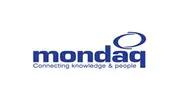
mondaq
Dr. Miklos Vasarhelyi, a professor at Rutgers University and head of the Rutgers CARlab, an accounting research center which furthers research and creative teaching methods in accounting and information systems, and Abigail Zhang, a PhD Candidate in Accounting Information Systems at Rutgers Business School, shared their perspectives on various technology related to accounting including robotics process automation (RPA), artificial intelligence (AI), blockchain and smart contracts at EisnerAmper's recent Process Risk and Technology Solutions Summit "Adapting to Change in a World of Evolving Technology."

Expansion Sollutions
As New Orleans experiences downtown residential growth and urban economic resurgence, the timing is perfect for the Aspen Institute Socrates Program to return to the Crescent City and examine why residential and job growth in many cities often results in less diversity and inclusion.
The seminar will be moderated by Lyneir Richardson, the executive director of The Center for Urban Entrepreneurship and Economic Development, a Rutgers Business School research and practitioner-oriented center. The salon will examine ways to expand opportunity, foster entrepreneurship and preserve the spirit of continual re-invention that animates American cities as they grow again. Registration is currently open.
The seminar will be moderated by Lyneir Richardson, the executive director of The Center for Urban Entrepreneurship and Economic Development, a Rutgers Business School research and practitioner-oriented center. The salon will examine ways to expand opportunity, foster entrepreneurship and preserve the spirit of continual re-invention that animates American cities as they grow again. Registration is currently open.

ABC 7 News
Alejandro Magallanes, the CEO and founder of Amarillo-based education technology startup Learn Lounge, was the recent recipient of a $10,000 grant from the Center for Urban Entrepreneurship and Economic Development’s Black & Latinx Tech Initiative (BLT), which is a program of the Rutgers University Business School in Newark, NJ.
“Alejandro’s pitch presentation to the Rutgers faculty and angel investors was polished, convincing, and very impressive,” says Lyneir Richardson, Executive Director of the Rutgers Center for Urban Entrepreneurship. “He was one of three winners of $10,000 accelerator grants, and he was competing against a number of very talented entrepreneurs from across the country who were selected for the BLT cohort.
“Alejandro’s pitch presentation to the Rutgers faculty and angel investors was polished, convincing, and very impressive,” says Lyneir Richardson, Executive Director of the Rutgers Center for Urban Entrepreneurship. “He was one of three winners of $10,000 accelerator grants, and he was competing against a number of very talented entrepreneurs from across the country who were selected for the BLT cohort.

YAHOO! Finance
Professor Jeffrey Robinson, the Academic Director of Rutgers' Center for Urban Entrepreneurship & Economic Development and recipient of the Aspen Institute's Social Impact Faculty Pioneer Award for his research, service and teaching activities at the intersection of business and society, commented: "David's unique perspectives on how people from different walks of life can develop an entrepreneurial mindset is invaluable advice in today's world." He is bringing McCourt to Rutgers Business School for a special event open to the public on August 7th, 2019.
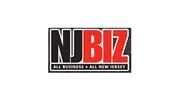
NJBIZ
From October 19 through 26, Montclair State University will be celebrating the sixth annual Women Entrepreneurship Week with speakers, conferences and other activities. At a time when many people are trying to tear down gender-based barriers, the divisions between men and women are still enough to warrant gender-specific events like this one, according to some experts.
“I was coaching a woman that had her own perfume line, and she was having a hard time moving her inventory,” recalled Jasmine Cordero-West, an associate director at Rutgers Business School Newark and New Brunswick who focuses on entrepreneurship programs. “As we are talking, she tells me that she used to work in a jewelry store and she was able to sell the product successfully there. I realized that the issue she had was selling her own product. She lacked confidence.”
Once she realized that, the business owner was able to sell more, Cordero West said.
“I was coaching a woman that had her own perfume line, and she was having a hard time moving her inventory,” recalled Jasmine Cordero-West, an associate director at Rutgers Business School Newark and New Brunswick who focuses on entrepreneurship programs. “As we are talking, she tells me that she used to work in a jewelry store and she was able to sell the product successfully there. I realized that the issue she had was selling her own product. She lacked confidence.”
Once she realized that, the business owner was able to sell more, Cordero West said.
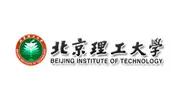
Beijing Institute of Technology
The conference accepted papers from scholars around the world, and eventually five papers entered the best paper finals. The Best Student Paper Awards Jury consists of internationally renowned academics in the field of service science, including Robin Qiu (Pennsylvania State University, Founder of INFORMS Service Science Section, Chief editor of INFORMS's subordinate journal Service Science), Paul Messinger (University of Alberta, Chairman of INFORMS Service Science Section ), Fiona Jamison (CEO of Spring International), Michael Pinedo (New York University, Chief editor of Journal of Scheduling), Weiwei Chen (Rutgers university, Associate editor of Journal of Simulation), Hui Yang (Pennsylvania State University, Associate Editor of IISE Transactions).

Global Business
During the War of 1812 (which didn’t end until 1815), British Navy ships began, on the night of September 13, 1814, a heavy bombardment of Fort McHenry, a promontory protecting the inner harbor of Baltimore. A giant American flag, measuring 30 x 42 feet, could be seen flying over the fort from long distances.
A Maryland lawyer, Francis Scott Key, very much an American patriot, viewed the bombardment while he was on board a British Navy vessel, which in several accounts is identified as the H.M.S. Minden. Why was he on a British ship? It was a gentlemanly arrangement. Key had gone on a sloop from Baltimore to negotiate with the British commander for the release of American prisoners, including the well-connected physician Dr. William Beanes.[3] Initially rebuffed, Key finally got permission to return with the released American prisoners. But by then, it was too late. Since both Key and Beanes knew about the plan to bombard Fort McHenry, all the Americans were detained through the night of September 13. They witnessed “…the rockets’ red glare, the bombs bursting in air…” in cannonades from as many as 19 British vessels.
A Maryland lawyer, Francis Scott Key, very much an American patriot, viewed the bombardment while he was on board a British Navy vessel, which in several accounts is identified as the H.M.S. Minden. Why was he on a British ship? It was a gentlemanly arrangement. Key had gone on a sloop from Baltimore to negotiate with the British commander for the release of American prisoners, including the well-connected physician Dr. William Beanes.[3] Initially rebuffed, Key finally got permission to return with the released American prisoners. But by then, it was too late. Since both Key and Beanes knew about the plan to bombard Fort McHenry, all the Americans were detained through the night of September 13. They witnessed “…the rockets’ red glare, the bombs bursting in air…” in cannonades from as many as 19 British vessels.

The Herald Sun
Eight years ago, Michael Lemanski’s grand vision to redevelop downtown Durham was crashing.
In the midst of this slide, Lemanski found a safe harbor at UNC-Chapel Hill’s School of Government as the director of a new university program helping local communities find developers to rebuild rundown areas. Lemanski took on the job with a $90,000 starting salary, and soon became viewed as a guru for the redevelopment of downtowns — including Durham’s — in three states.
“Just because you are doing good doesn’t mean you can do it any way you want,” said Joanne Ciulla, a Rutgers University professor.
Ciulla, the Rutgers business ethics expert, said those who use public office addresses as contacts for private business raise the question as to whether they are using public resources for private purposes.
In the midst of this slide, Lemanski found a safe harbor at UNC-Chapel Hill’s School of Government as the director of a new university program helping local communities find developers to rebuild rundown areas. Lemanski took on the job with a $90,000 starting salary, and soon became viewed as a guru for the redevelopment of downtowns — including Durham’s — in three states.
“Just because you are doing good doesn’t mean you can do it any way you want,” said Joanne Ciulla, a Rutgers University professor.
Ciulla, the Rutgers business ethics expert, said those who use public office addresses as contacts for private business raise the question as to whether they are using public resources for private purposes.
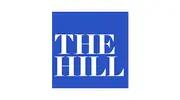
The Hill
By way of example, consider the situation of Jeff Bezos. Assume that he originally invested $100,000 to form Amazon and that the fair market value of his stock is now $100 billion. His tax basis would be $100,000, and if he sold his stock, he would be taxed on every dollar he received in excess of that amount. But if Bezos passed away tomorrow, the “step up in basis” rule would erase his entire accumulated gain from income taxation. His heirs would inherit the Amazon stock with a $100 billion tax basis, and could sell the stock tax free, depriving the Treasury of nearly $25 billion.

NJ.com
There seems to be a lot of saber-rattling these days and it got me to thinking. So, when did we last win a war?
I recently turned 68, a baby boomer who has been extremely lucky to be born in what is arguably the country of greatest opportunity and wealth during its height of power and influence, the second half of the 20th century.
As a marketing professional for my career, and nearly 20 years a professor of same, there is great learning to be gotten from studying our past. As each semester nears completion I challenge my students to look back on the full term, to learn lessons from our experiences and what they might suggest going forward. And as a trained history teacher, I believe there are important lessons from the past as we strategize and plan for the future, in business and in our political environment.
I recently turned 68, a baby boomer who has been extremely lucky to be born in what is arguably the country of greatest opportunity and wealth during its height of power and influence, the second half of the 20th century.
As a marketing professional for my career, and nearly 20 years a professor of same, there is great learning to be gotten from studying our past. As each semester nears completion I challenge my students to look back on the full term, to learn lessons from our experiences and what they might suggest going forward. And as a trained history teacher, I believe there are important lessons from the past as we strategize and plan for the future, in business and in our political environment.

Rutgers Today
Paveena Sachdeva, an accounting major at Rutgers Business School-Newark and New Brunswick, is part of the team of engineering, business and art school students, who will compete in the Formula Sun Grand Prix at the Circuit of the Americas in Austin, Texas, between July 3-6.
Business students, including Sachdeva, led the team’s marketing and fundraising efforts, which were essential to paying for the technology needed to build the car. They are also leading the logistical work involved in transporting the car cross-country, and bringing the car to public schools across the state to promote sustainable energy and show students what they can achieve with higher education.
Business students, including Sachdeva, led the team’s marketing and fundraising efforts, which were essential to paying for the technology needed to build the car. They are also leading the logistical work involved in transporting the car cross-country, and bringing the car to public schools across the state to promote sustainable energy and show students what they can achieve with higher education.

Poets & Quants for Executives
What is the biggest lesson you gained during your MBA and how did you apply it at work?
One of my goals in joining the program was to hone my leadership skills – and execute decisions with relevant information. While previously I just knew how to make the right choices, I did not fully understand the reasons “why?” A year into the program, I was able to use every bit of learning I encountered. The real-world application orientation of the program – through its emphasis on market analysis, and investigations of journal and news articles in Managerial Statistics, Business Law, and Economics – helped me relate theory to practice. Leadership starts not just with knowledge, but also with people skills and with a genuine interest in improving the lives of people.
Professor Langdana’s “Cycle-Of-One” leadership lessons rescued me from some sticky corner-office situations and this mode of learning and its implementation helped me and my organization accomplish double-digit growth in revenue and size. The beauty of the EMBA program lies in the gradual build-up and enlightenment that comes with it over two years. In the “language of MBA,” I consider it an utter waste of an investment if an MBA degree doesn’t make you a better human being because at the receiving end of all decisions, are people whose lives you can impact as a leader.
One of my goals in joining the program was to hone my leadership skills – and execute decisions with relevant information. While previously I just knew how to make the right choices, I did not fully understand the reasons “why?” A year into the program, I was able to use every bit of learning I encountered. The real-world application orientation of the program – through its emphasis on market analysis, and investigations of journal and news articles in Managerial Statistics, Business Law, and Economics – helped me relate theory to practice. Leadership starts not just with knowledge, but also with people skills and with a genuine interest in improving the lives of people.
Professor Langdana’s “Cycle-Of-One” leadership lessons rescued me from some sticky corner-office situations and this mode of learning and its implementation helped me and my organization accomplish double-digit growth in revenue and size. The beauty of the EMBA program lies in the gradual build-up and enlightenment that comes with it over two years. In the “language of MBA,” I consider it an utter waste of an investment if an MBA degree doesn’t make you a better human being because at the receiving end of all decisions, are people whose lives you can impact as a leader.

CNN Business
Something extraordinary is happening behind the scenes at Impossible Foods.
The company has seen a huge surge in demand. And though you wouldn't know it from stepping into its Bay Area headquarters, it's in a frenzy.
The problem: Impossible is running low on fake meat.
Nestlé's scale, volume and extensive distribution channels could make it a game changer, said Arash Azadegan, an associate professor at Rutgers Business School with expertise in supply chain management. The company's large, well-established system can help keep costs down and supply plentiful.
"There's a Goliath entering into the market," Azadegan said.
The company has seen a huge surge in demand. And though you wouldn't know it from stepping into its Bay Area headquarters, it's in a frenzy.
The problem: Impossible is running low on fake meat.
Nestlé's scale, volume and extensive distribution channels could make it a game changer, said Arash Azadegan, an associate professor at Rutgers Business School with expertise in supply chain management. The company's large, well-established system can help keep costs down and supply plentiful.
"There's a Goliath entering into the market," Azadegan said.

Wallet Hub
What do the best business credit cards have in common?
The best business cards have low interest rates, small annual fees, high credit limit, and attractive miles/points that can be used for travel discounts. I also think it would be great - perhaps one a quarter - to have some flexibility “to skip a payment for 60 days” without negative credit reporting. This could help with small business cash flow management during periods when accounts receivable have not been collected.
The best business cards have low interest rates, small annual fees, high credit limit, and attractive miles/points that can be used for travel discounts. I also think it would be great - perhaps one a quarter - to have some flexibility “to skip a payment for 60 days” without negative credit reporting. This could help with small business cash flow management during periods when accounts receivable have not been collected.
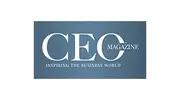
CEO Magazine
Innovation is in our DNA: Oemer Akyazici, Rutgers Business School International EMBA, Shanghai '09
While many executives might relish the opportunity to talk about their business achievements, Oemer Akyazici is quite the opposite. Rather than spend too much time reflecting on the past, the Schuler China CEO prefers to keep his eyes firmly focused on what’s happening now and in the future.
“A company like Schuler should never be satisfied with its past success in light of rapidly changing market conditions,” Oemer explains.
“Of course, thanks to our outstanding employees, we’re solidly positioned in many different areas. However, if we wish to remain competitive in the future, it’s essential we generate a constant stream of product innovations.”
While many executives might relish the opportunity to talk about their business achievements, Oemer Akyazici is quite the opposite. Rather than spend too much time reflecting on the past, the Schuler China CEO prefers to keep his eyes firmly focused on what’s happening now and in the future.
“A company like Schuler should never be satisfied with its past success in light of rapidly changing market conditions,” Oemer explains.
“Of course, thanks to our outstanding employees, we’re solidly positioned in many different areas. However, if we wish to remain competitive in the future, it’s essential we generate a constant stream of product innovations.”
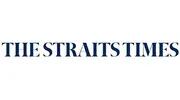
The Straits Times
It is difficult to understand why some people (typically progressives) are so hung up on the issue of inequality. It is absolutely essential for progress.
Think of any innovation: the car, the airplane, pharmaceuticals, the color television, the video recorder, the DVD player, the iPad, the iPhone, and so on.
It is the wealthy who first demand these things. Next, it is the innovators and entrepreneurs, driven by the profit motive, who bring them to the market.
Competition then drives down the prices, making it possible for the average person, even the poor, to buy the items.
Some will call this trickle-down economics, but then has anybody heard of trickle-up economics?
The Soviets, Eastern Europeans, Cubans and Venezuelans have tried it.
In their "quest for equality" by redistributing wealth, they have been enormously successful in redistributing misery.
Think of any innovation: the car, the airplane, pharmaceuticals, the color television, the video recorder, the DVD player, the iPad, the iPhone, and so on.
It is the wealthy who first demand these things. Next, it is the innovators and entrepreneurs, driven by the profit motive, who bring them to the market.
Competition then drives down the prices, making it possible for the average person, even the poor, to buy the items.
Some will call this trickle-down economics, but then has anybody heard of trickle-up economics?
The Soviets, Eastern Europeans, Cubans and Venezuelans have tried it.
In their "quest for equality" by redistributing wealth, they have been enormously successful in redistributing misery.

Customs Broker News
Often opportunity cost comes down to money – how it’s allocated, how much to borrow and when the funds will be returned. “As the cost of keeping working capital is increasing, more and more financial institutions are looking for more conservative ways to borrow money,” Weiwei Chen PhD, associate professor of supply chain management at Rutgers Business School, told Supply Chain Dive.
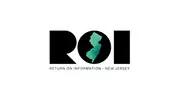
Return on Information
The Rutgers University Center for Urban Entrepreneurship and Economic Development announced Wednesday it hosted a Black and Latino Tech initiative Pre-Accelerator Demo Day for minority entrepreneurs.
The initiative is a program developed and sponsored by the CUEED and was held at the Rutgers Business School. The mission is to provide Black and Latino startup entrepreneurs with educational training, coaching, mentorship, networking, funding and more.
Eleven startup companies from New Jersey, New York, Virginia, Massachusetts, California and Texas presented at the event.
Integrate Tech, a Newark-based ed tech startup, was the winner of the first annual “Audience Choice Award” and was given a check for $1,000.
The initiative is a program developed and sponsored by the CUEED and was held at the Rutgers Business School. The mission is to provide Black and Latino startup entrepreneurs with educational training, coaching, mentorship, networking, funding and more.
Eleven startup companies from New Jersey, New York, Virginia, Massachusetts, California and Texas presented at the event.
Integrate Tech, a Newark-based ed tech startup, was the winner of the first annual “Audience Choice Award” and was given a check for $1,000.

The Reporter Group
In the Jewish community, Rhonda F. Levine, professor emerita of sociology at Colgate University, is best known for her book “Class, Networks, and Identity: Replanting Jewish Lives from Nazi Germany to Rural New York.” For that work, Levine interviewed Jewish refugees – some of them local – about their lives after they arrived in America.
Her new, ambitious work, “When Race Meets Class: African Americans Coming of Age in a Small City,” focuses on people’s lives as they occurred over a 15-year period.
The publisher describes “When Race Meets Class” as “a rare, 15-year ethnography, [that] follows the lives of individual, low-income African American youth from the beginning of high school into their early adult years. Levine shows how their interaction and experience with multiple institutions (family, school, community) and individuals (parents, friends, teachers, coaches, strangers) shape their hopes, fears, aspirations, and worldviews.”
According to Nancy DiTomaso, distinguished professor at Rutgers Business School, “‘When Race Meets Class’ provides a much-needed contribution to the understanding of how race, class, and gender reproduce inequality.”
Her new, ambitious work, “When Race Meets Class: African Americans Coming of Age in a Small City,” focuses on people’s lives as they occurred over a 15-year period.
The publisher describes “When Race Meets Class” as “a rare, 15-year ethnography, [that] follows the lives of individual, low-income African American youth from the beginning of high school into their early adult years. Levine shows how their interaction and experience with multiple institutions (family, school, community) and individuals (parents, friends, teachers, coaches, strangers) shape their hopes, fears, aspirations, and worldviews.”
According to Nancy DiTomaso, distinguished professor at Rutgers Business School, “‘When Race Meets Class’ provides a much-needed contribution to the understanding of how race, class, and gender reproduce inequality.”

NJBIZ
The Rutgers University Business School is offering a new online Master of Science in Digital Marketing to produce modern marketing professionals with the knowledge and skills in demand by a growing industry.
The program is designed to provide in-depth instruction to a variety of prospective students, including educated marketing veterans continuing careers in a digital world and young professionals with one or two years of work experience.
“I often say there’s no such thing as digital marketing. There’s just marketing in a digital world,” said Stacy Schwartz, a Rutgers professor of professional practice who is building the program.
The program is designed to provide in-depth instruction to a variety of prospective students, including educated marketing veterans continuing careers in a digital world and young professionals with one or two years of work experience.
“I often say there’s no such thing as digital marketing. There’s just marketing in a digital world,” said Stacy Schwartz, a Rutgers professor of professional practice who is building the program.

NBC News
While stereotypes and security concerns are often used to defend discriminatory actions, they don’t have a basis in fact, said Jerome Williams, a consumer psychologist at Rutgers University-Newark who has researched what he calls “retail racism” for more than 25 years.
In one case, Williams found that black people made up 10 percent of a department store’s customers but 90 percent of those stopped by the store’s security team. The store’s explanation: Security was in place to prevent shoplifting.
There is no evidence that black Americans steal more often than anyone else, Williams said. There is evidence that black Americans are more closely monitored and more often accused, then more often arrested and prosecuted by a criminal justice system with well-documented biases.
In one case, Williams found that black people made up 10 percent of a department store’s customers but 90 percent of those stopped by the store’s security team. The store’s explanation: Security was in place to prevent shoplifting.
There is no evidence that black Americans steal more often than anyone else, Williams said. There is evidence that black Americans are more closely monitored and more often accused, then more often arrested and prosecuted by a criminal justice system with well-documented biases.
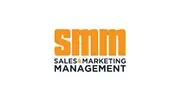
Sales & Marketing Management
As a long-term practitioner of marketing, now over 40 years in duration, I have often been challenged by the concept of “The Brand,” what it communicates, what it means, what it stands for and how it is integral to an organization’s position and ultimate success in the market. Bringing a background in consumer packaged goods (CPG) that incorporated executive-level marketing and sales stints on the client, vendor, and agency sides of the business, and now as a professor of same, I am often struck by our approach to positioning our brands, and wonder why we do not take a similar approach to ourselves. Are you not a “Brand” to those considering your value to the organization? A brand to be adopted (or hired) or rejected in favor of another whose potential is deemed superior. Isn’t that how we make purchase decisions? Isn’t that how hiring professionals approach the employee recruitment process? Is there really a difference?

Climate Liability News
Whether a company joins—and remains—a member of National Association of Manufacturers (NAM) or any trade group depends on how much it agrees with the association’s activities and how its membership in the association affects its reputation, said Michael Barnett, a professor of management & global business at Rutgers Business School who has studied trade groups.
“[Trade associations] are effective by influencing what others outside the industry think of the industry, like regulators, like customers, like communities,” Barnett said.
Trade groups help shield individual companies from the public relations backlash of lobbying on behalf of their industry. They often work as organizing forces to oppose regulation of industries and to lobby government for favorable laws and policies.
“The member firms want cover, they want that legitimacy, they want an improved reputation, but they don’t want to do those things necessary to gain that,” Barnett said. “It’s sort of like they’ve hired a personal trainer and they want that trainer to say, ‘Eat cake and you’re going to get fit.’”
“[Trade associations] are effective by influencing what others outside the industry think of the industry, like regulators, like customers, like communities,” Barnett said.
Trade groups help shield individual companies from the public relations backlash of lobbying on behalf of their industry. They often work as organizing forces to oppose regulation of industries and to lobby government for favorable laws and policies.
“The member firms want cover, they want that legitimacy, they want an improved reputation, but they don’t want to do those things necessary to gain that,” Barnett said. “It’s sort of like they’ve hired a personal trainer and they want that trainer to say, ‘Eat cake and you’re going to get fit.’”

The Daily Targum
For Anthony Brown, a Rutgers Business School senior soon to graduate from Rutgers–Newark, his biggest inspiration is his father.
After posting a drawing of himself and his father with the caption, “Pops took a job as a janitor that allowed me to receive free tuition at Rutgers University. He passed and I told myself his sacrifice would not be in vain. Here it is! Give the janitor the same respect you give the CEO.” on Twitter, Brown garnered more than 50,000 likes and 10,000 retweets in the span of four days.
After posting a drawing of himself and his father with the caption, “Pops took a job as a janitor that allowed me to receive free tuition at Rutgers University. He passed and I told myself his sacrifice would not be in vain. Here it is! Give the janitor the same respect you give the CEO.” on Twitter, Brown garnered more than 50,000 likes and 10,000 retweets in the span of four days.

National Association of State Boards of Accountancy (NASBA)
Three accounting education research grants were approved for funding by the NASBA Board of Directors at their April Meeting. Based on the recommendations of the Education Committee, as presented by Education Committee Chair Stephanie Saunders (VA) the following projects are receiving grants from NASBA:
“Why Master’s in Accounting Students Do Not Sit for the CPA: Determinants and Perceptions of CPA Value” – Dierdre Collier, Ph.D., Associate Professor – Fairleigh Dickinson University; Hannah Rozen, Ph.D., Associate Professor – Fairleigh Dickinson University; and Alexander Sannella, Ph.D., Professor of Accounting – Rutgers University.
“Why Master’s in Accounting Students Do Not Sit for the CPA: Determinants and Perceptions of CPA Value” – Dierdre Collier, Ph.D., Associate Professor – Fairleigh Dickinson University; Hannah Rozen, Ph.D., Associate Professor – Fairleigh Dickinson University; and Alexander Sannella, Ph.D., Professor of Accounting – Rutgers University.
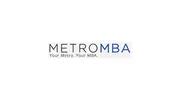
Metro MBA
While a career in real estate is not one of the most popular options for MBA graduates, it is a solid choice. The U.S. real estate industry pulls in over $166 billion in revenue each year, and markets in India, China, and other emerging economies are poised to expand. So, the question is, if you’re looking to go to school in the Northeast, where are the best MBA programs to help build a career in the industry?
We’ve highlighted five of our favorite Northeast real estate programs below.
NYU Stern School of Business, Georgetown University McDonough School of Business, The Wharton School, Columbia Business School, Rutgers Business School
Full-time MBA students at the Rutgers Business School can customize their education with a real estate concentration. In total, students who choose this path will take six courses in real estate including strategic management. They can also pursue a dual concentration in finance and real estate, which requires them to take a course in aggregate economic analysis.
Other potential real estate courses that MBA students can take, include:
Real Estate Finance
Real Estate Capital Markets
Market Analysis and Valuation
Property Management and Real Estate Investment Management
Real Estate Outside the Classroom
Center for Real Estate: The Rutgers Center for Real Estate is a dynamic hub for students, academics, and professionals. It aims to educate, research, and exchange ideas on real estate. Currently, more than 95 real estate professionals lend their influence to the Center.
Rutgers Real Estate Club: The Club is a “place for people interested in real estate, internships, and everything business. It brings together experienced speakers for a variety of events and opportunities.
We’ve highlighted five of our favorite Northeast real estate programs below.
NYU Stern School of Business, Georgetown University McDonough School of Business, The Wharton School, Columbia Business School, Rutgers Business School
Full-time MBA students at the Rutgers Business School can customize their education with a real estate concentration. In total, students who choose this path will take six courses in real estate including strategic management. They can also pursue a dual concentration in finance and real estate, which requires them to take a course in aggregate economic analysis.
Other potential real estate courses that MBA students can take, include:
Real Estate Finance
Real Estate Capital Markets
Market Analysis and Valuation
Property Management and Real Estate Investment Management
Real Estate Outside the Classroom
Center for Real Estate: The Rutgers Center for Real Estate is a dynamic hub for students, academics, and professionals. It aims to educate, research, and exchange ideas on real estate. Currently, more than 95 real estate professionals lend their influence to the Center.
Rutgers Real Estate Club: The Club is a “place for people interested in real estate, internships, and everything business. It brings together experienced speakers for a variety of events and opportunities.

YAHOO! Finance
Leading litigation funder Validity Finance has launched a new Equal Access Fellowship, providing a paid summer fellowship to first-year law students of diverse backgrounds. For 2019, the company has selected two distinguished first-year students to spend the summer in Validity's New York office, with an option to split their time working for a pro bono organization of their choice.
The two inaugural Equal Access Fellows are New York University School of Law JD candidate Amanda Gonzalez Burton and Georgetown University Law Center JD candidate Jarrett Lewis.
Amanda Gonzalez Burton is a 1L at New York University School of Law, where she is a recipient of the Norma Z. Paige Scholarship and is a Dean's Scholar and Birnbaum Women's Leadership Fellow. She is a board member of the Latinx Law Students Association. She previously worked for Teach for America and as a Sponsor for Educational Opportunity Law Fellows at Clifford Chance. Ms. Burton obtained an MBA from Rutgers Business School in 2014 and a B.A. in Interdisciplinary Social Sciences from Florida State University in 2009, graduating magna cum laude and Phi Beta Kappa.
The two inaugural Equal Access Fellows are New York University School of Law JD candidate Amanda Gonzalez Burton and Georgetown University Law Center JD candidate Jarrett Lewis.
Amanda Gonzalez Burton is a 1L at New York University School of Law, where she is a recipient of the Norma Z. Paige Scholarship and is a Dean's Scholar and Birnbaum Women's Leadership Fellow. She is a board member of the Latinx Law Students Association. She previously worked for Teach for America and as a Sponsor for Educational Opportunity Law Fellows at Clifford Chance. Ms. Burton obtained an MBA from Rutgers Business School in 2014 and a B.A. in Interdisciplinary Social Sciences from Florida State University in 2009, graduating magna cum laude and Phi Beta Kappa.

The Daily Targum
Within the Rutgers Business School (RBS), Blockchain Hub is a new student-run initiative that revolves around educating and training students on blockchain technology, which is a record of data that is not owned by a single entity.
Won Gyun No, an assistant professor in the Department of Accounting and Information Systems, said blockchain can record almost anything that can be digitally represented, such as transactions, values, goods and ownership. The technology can also be applied to a variety of industries, such as healthcare, insurance and government.
Won Gyun No, an assistant professor in the Department of Accounting and Information Systems, said blockchain can record almost anything that can be digitally represented, such as transactions, values, goods and ownership. The technology can also be applied to a variety of industries, such as healthcare, insurance and government.

Find-MBA.com
Top Business Schools for Healthcare / Pharma / Biotech 2019
Located in what is known as "The Healthcare City" - Rutgers is close to big pharma companies like Johnson & Johnson and Bristol-Myers Squibb, as well as several large hospitals. Rutgers' Pharmaceutical Management MBA concentration and the Lerner Center—which publishes relevant research and puts on events—further strengthen the school's links to the biopharmaceutical industry. Thirty-seven percent of the class of 2018 went into the healthcare or pharma industries, one of the highest rates of any school that FIND MBA surveyed.
Top Business Schools for Operations Management 2019
Through Rutgers' Center for Operations Research, students can pursue a dual-degree MBA / MS in Operations Research and Business Analytics, which covers topics in information technology, analytics, and related areas. Over 30 percent of Rutgers’ 2018 MBA graduates went into operations and related roles.
Top Business Schools for Supply Chain Management 2019
In 2009, Rutgers Business School founded the Center for Supply Chain Management, which offers a certificate in supply chain management and produces a range of relevant publications. The school offers an MBA in Supply Chain Management, which is ranked highly in Gartner's 2018 Top 25 North American Supply Chain University Graduate Programs. Over thirty percent of Rutgers’ MBA class of 2018 went into operations or logistic roles.
Located in what is known as "The Healthcare City" - Rutgers is close to big pharma companies like Johnson & Johnson and Bristol-Myers Squibb, as well as several large hospitals. Rutgers' Pharmaceutical Management MBA concentration and the Lerner Center—which publishes relevant research and puts on events—further strengthen the school's links to the biopharmaceutical industry. Thirty-seven percent of the class of 2018 went into the healthcare or pharma industries, one of the highest rates of any school that FIND MBA surveyed.
Top Business Schools for Operations Management 2019
Through Rutgers' Center for Operations Research, students can pursue a dual-degree MBA / MS in Operations Research and Business Analytics, which covers topics in information technology, analytics, and related areas. Over 30 percent of Rutgers’ 2018 MBA graduates went into operations and related roles.
Top Business Schools for Supply Chain Management 2019
In 2009, Rutgers Business School founded the Center for Supply Chain Management, which offers a certificate in supply chain management and produces a range of relevant publications. The school offers an MBA in Supply Chain Management, which is ranked highly in Gartner's 2018 Top 25 North American Supply Chain University Graduate Programs. Over thirty percent of Rutgers’ MBA class of 2018 went into operations or logistic roles.

Daily News
During Donald Trump’s 2016 presidential campaign, he vociferously complained that the tax system, indeed the entire economy, was rigged. Turns out, he’s right: The tax system is rigged. However, what Trump repeatedly failed to point out, and what is confirmed by a revelatory new New York Times report showing his huge losses and paltry tax payments over a decade, is that he and his family were and are benefactors of this system.
Consider some salient facts: Income based on labor, which is how the vast majority of working stiffs make a living, bears both payroll and income tax. The combined tax rate is often in excess of 50%. By way of stark contrast, the tax on capital income is taxed only once and at tax rates less than half imposed on labor, often 23.8%.
Consider some salient facts: Income based on labor, which is how the vast majority of working stiffs make a living, bears both payroll and income tax. The combined tax rate is often in excess of 50%. By way of stark contrast, the tax on capital income is taxed only once and at tax rates less than half imposed on labor, often 23.8%.
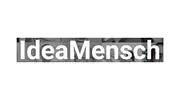
IdeaMensch
Ginger is the founder & CEO at Grace Kingdom Beauty, a cosmetic product development firm in New Jersey where she consults for cosmetic brands, contract manufacturers and raw material suppliers. She has previously held management positions with Barnet Products Corporation, (cosmetic Raw material supplier), ChemAid Laboratories (cosmetic contract manufacturer), Freeze 24/7 International (Cosmetic marketing company), Avon Products Inc. (Fortune 500 company), Joico laboratories (salon hair care) and Jason Natural Cosmetics (Natural Cosmetics).
Additionally, Ginger has been an adjunct professor at Rutgers Business School teaching a Saturday class on Business of Fashion/Beauty.
Additionally, Ginger has been an adjunct professor at Rutgers Business School teaching a Saturday class on Business of Fashion/Beauty.
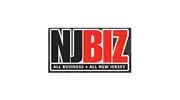
NJBIZ
Small businesses can be targeted “not only for their information, but because they may be a gateway to larger companies,” said Jaideep Vaidya, a Rutgers University management science and information systems professor. “That’s what happened in the massive Target breach,” when digital credentials — reportedly hacked from a third-party HVAC vendor — were used to get into the retailer’s systems, snatching payment and personal information from millions of customers.
The fallout from a hack like that can decimate a small business, he warned. “Once customers find out — and they likely will, depending on state-level breach reporting requirements — they may abandon you.”
But securing the vaults doesn’t have to break a small business’ budget. A good defense will comprise multiple layers, he said, including commercially available — and relatively inexpensive — antivirus software, in addition to a firewall that can help shield a system from unauthorized access.
“Best practices include choosing complicated passwords, and changing them periodically,” he said. “Multifactor authorization [after a password is entered, a separate code will be sent to a mobile device, and that must be entered too] also enhances security. Additionally, software can be configured to automatically accept security updates, which are an important safety factor.”
The fallout from a hack like that can decimate a small business, he warned. “Once customers find out — and they likely will, depending on state-level breach reporting requirements — they may abandon you.”
But securing the vaults doesn’t have to break a small business’ budget. A good defense will comprise multiple layers, he said, including commercially available — and relatively inexpensive — antivirus software, in addition to a firewall that can help shield a system from unauthorized access.
“Best practices include choosing complicated passwords, and changing them periodically,” he said. “Multifactor authorization [after a password is entered, a separate code will be sent to a mobile device, and that must be entered too] also enhances security. Additionally, software can be configured to automatically accept security updates, which are an important safety factor.”

NJTV News
A 20,000 square foot redeveloped building on Jersey City’s Martin Luther King Jr. Drive is the new national headquarters of Rising Tide Capital, a nonprofit founded 15 years ago.
When completed, 311 MLK will house an Urban Entrepreneurship Accelerator for folks from all over the state who are eager to start a business. They can come to the building for classes, guidance, coaching and connection to sources of funding.
Jeffrey Robinson, the academic director of Rutgers University’s Center for Urban Entrepreneurship and Economic Development, says it’s not just about what a business accelerator offers, it’s also about what entrepreneurs bring to the experience.
“They need to be focused on what they’re doing, but willing to accept some critique, some criticism, in some cases, some advice from other folks. Sometimes entrepreneurs don’t want to listen to anybody else,” said Robinson.
When completed, 311 MLK will house an Urban Entrepreneurship Accelerator for folks from all over the state who are eager to start a business. They can come to the building for classes, guidance, coaching and connection to sources of funding.
Jeffrey Robinson, the academic director of Rutgers University’s Center for Urban Entrepreneurship and Economic Development, says it’s not just about what a business accelerator offers, it’s also about what entrepreneurs bring to the experience.
“They need to be focused on what they’re doing, but willing to accept some critique, some criticism, in some cases, some advice from other folks. Sometimes entrepreneurs don’t want to listen to anybody else,” said Robinson.
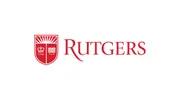
Rutgers University
Jose Baez, a first-generation college student, credits the Rutgers Road to Wall Street program for preparing and providing him with the resources to intern with J.P. Morgan's Commercial Real Estate division this summer.

CBS News Sunday Morning
Kevin Lyons, who teaches supply chain management at Rutgers University, says it's the same problem year after year.
Visiting a landfill in Burlington County, N.J., Braver asked Lyons, "The number I keep hearing is there's something like four billion tons of unused goods that still ends up getting dumped in places like this?"
"That's correct. Instead of packaging it and maybe possibly getting it to folks that might need it, it's easier for them just to get it off their books," Lyons said.
"Have things improved over the years?"
"It has improved a little," he replied. "But not enough to handle the glut."
Visiting a landfill in Burlington County, N.J., Braver asked Lyons, "The number I keep hearing is there's something like four billion tons of unused goods that still ends up getting dumped in places like this?"
"That's correct. Instead of packaging it and maybe possibly getting it to folks that might need it, it's easier for them just to get it off their books," Lyons said.
"Have things improved over the years?"
"It has improved a little," he replied. "But not enough to handle the glut."
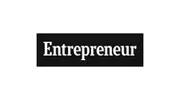
Entrepreneur
Gabriela Tonietto, a professor of marketing at Rutgers University, and Selin Malkoc, a professor of marketing of Ohio State University discovered that when a leisure activity is planned, it’s less enjoyable than if it had taken place spontaneously.
“It becomes a part of our to-do list,” Malkoc told The Washington Post. “As an outcome, they [the activity] becomes less enjoyable.” Additionally, in the constant quest to improve productivity, we over-schedule activities. If we lineup every minute with an event, it means we’re doing more and enjoying less.
“It becomes a part of our to-do list,” Malkoc told The Washington Post. “As an outcome, they [the activity] becomes less enjoyable.” Additionally, in the constant quest to improve productivity, we over-schedule activities. If we lineup every minute with an event, it means we’re doing more and enjoying less.

NJ.com
Tax attorney Jay Soled, a professor at Rutgers Business School and director of the university’s Masters in Taxation Program, said accelerated write-offs essentially allow companies to expense anything they purchase.
“It juices up the economy on a temporary basis and minimizes their tax burden,” he said.
At the same time, Soled noted companies in general have become very proficient in parking their income offshore. That causes companies, for tax purposes, to avoid showing a lot of profit.
Still, he cautioned that if companies pay more in taxes, that ultimately gets passed on to someone else.
“It juices up the economy on a temporary basis and minimizes their tax burden,” he said.
At the same time, Soled noted companies in general have become very proficient in parking their income offshore. That causes companies, for tax purposes, to avoid showing a lot of profit.
Still, he cautioned that if companies pay more in taxes, that ultimately gets passed on to someone else.

Federal Reserve Bank of New York
The Federal Reserve Bank of New York today announced the formation of the Education and Industry Forum on Financial Services Culture (the Forum), a private-sector group sponsored by the New York Fed. The Forum’s first meeting will be May 7, 2019.
The primary goal of the Forum is to provide regular opportunities for senior representatives from business schools and financial institutions to identify challenges faced by the financial services industry with regard to culture and conduct, and identify possible areas of collaboration to address them.
Education and Industry Forum on Financial Services Culture Members include
Joanne B. Ciulla, Professor and Director of the Institute for Ethical Leadership, Rutgers Business School
The primary goal of the Forum is to provide regular opportunities for senior representatives from business schools and financial institutions to identify challenges faced by the financial services industry with regard to culture and conduct, and identify possible areas of collaboration to address them.
Education and Industry Forum on Financial Services Culture Members include
Joanne B. Ciulla, Professor and Director of the Institute for Ethical Leadership, Rutgers Business School

Enterra Solutions
John Impellizzeri, an Assistant Professor of Professional Practice at the Rutgers Business School and former supply chain executive, predicts analytics will become a future enterprise differentiator. He explains, “Twenty years ago, Boston Consulting Group’s Harold Sirkin warned that competition is no longer ‘company versus company but supply chain versus supply chain,’ signaling a new era of supply chain relevance. As we sit here today, perhaps we can refine Sirkin’s hypothesis to a battle over the competency of ‘supply chain analytics versus supply chain analytics’.”

Yahoo Finance
DesignRush.com, a B2B marketplace connecting brands with agencies, researched and discovered the 25 best undergraduate marketing programs that deliver top-notch educations, immersive experience, and advantageous employment opportunities through internships and post-graduate jobs.
The Marketing department at Rutgers Business School focuses on the importance of marketing science. The professors and faculty members are all practitioners or experts in marketing strategy, marketing strategy, research and consumer behavior, digital marketing, marketing in the pharmaceutical industry, customer relationship marketing, database marketing, retail marketing, marketing analytics as well as marketing in the fashion and luxury industry and real estate. Plus, its New Jersey location helps students secure prime internships and careers throughout New York, Philadelphia, the tri-state area and beyond.
http://www.business.rutgers.edu/faculty-research/marketing
The Marketing department at Rutgers Business School focuses on the importance of marketing science. The professors and faculty members are all practitioners or experts in marketing strategy, marketing strategy, research and consumer behavior, digital marketing, marketing in the pharmaceutical industry, customer relationship marketing, database marketing, retail marketing, marketing analytics as well as marketing in the fashion and luxury industry and real estate. Plus, its New Jersey location helps students secure prime internships and careers throughout New York, Philadelphia, the tri-state area and beyond.
http://www.business.rutgers.edu/faculty-research/marketing